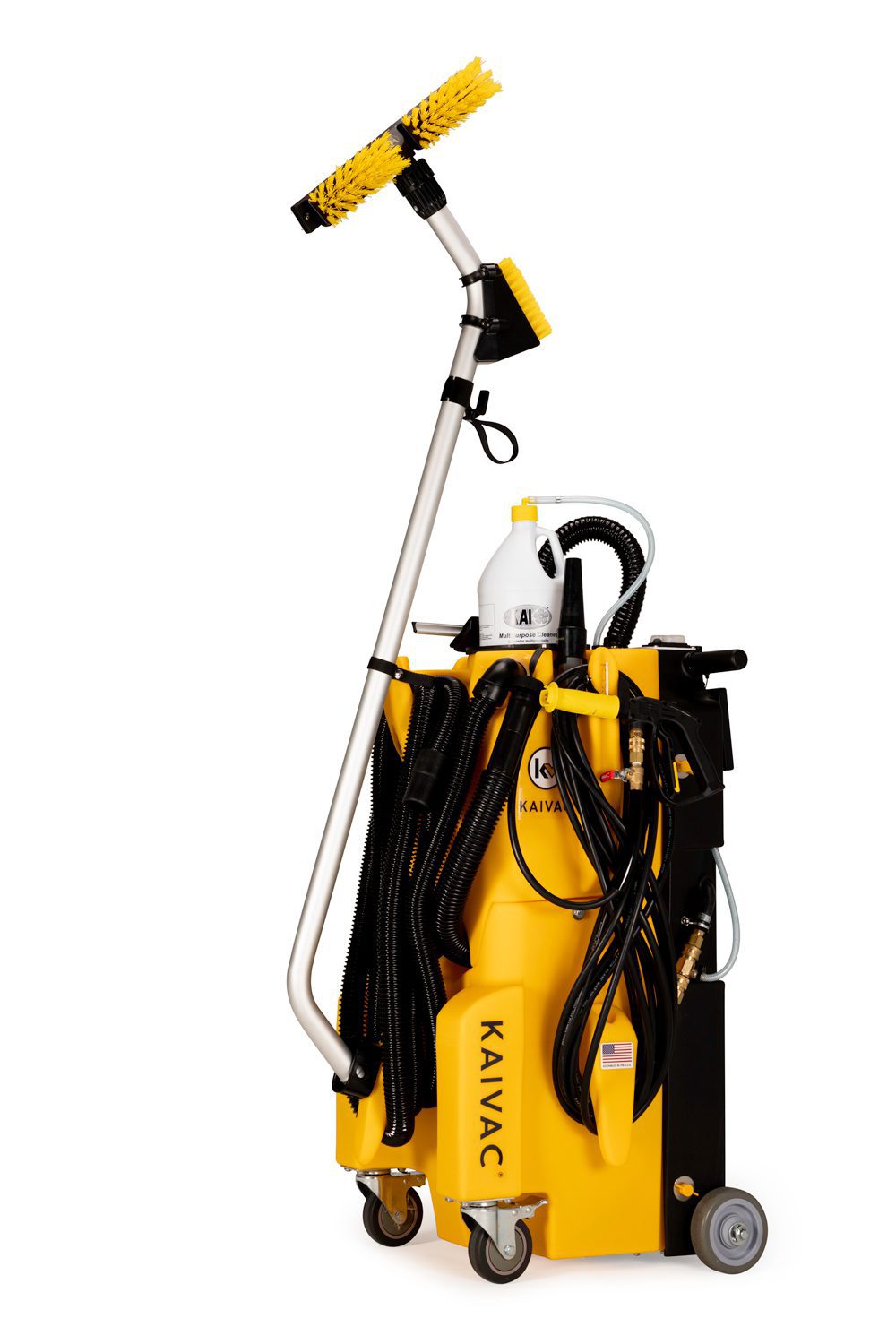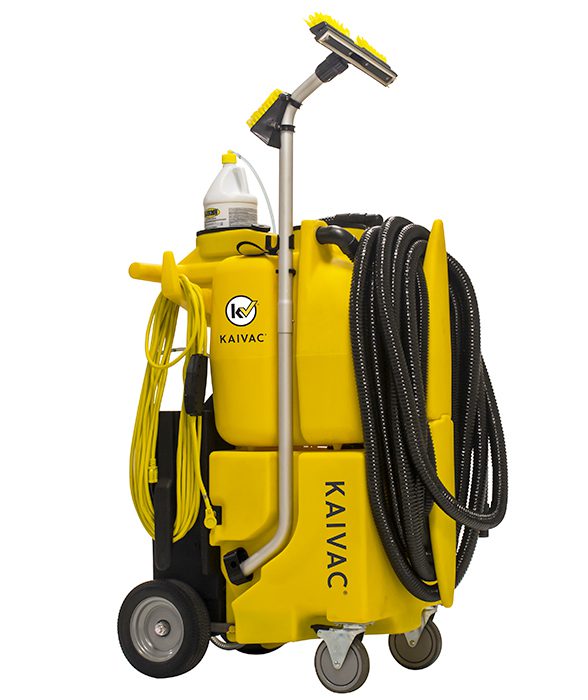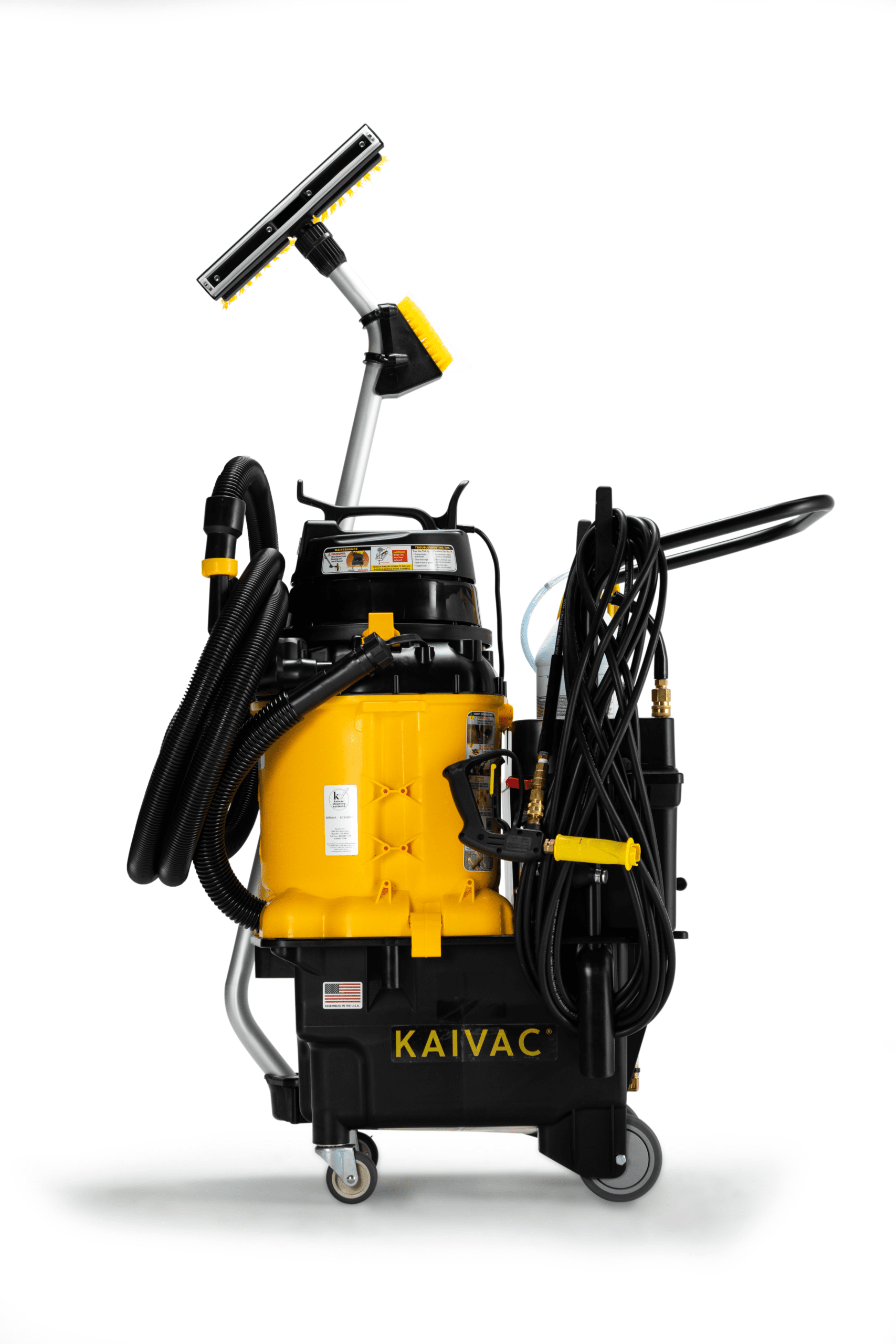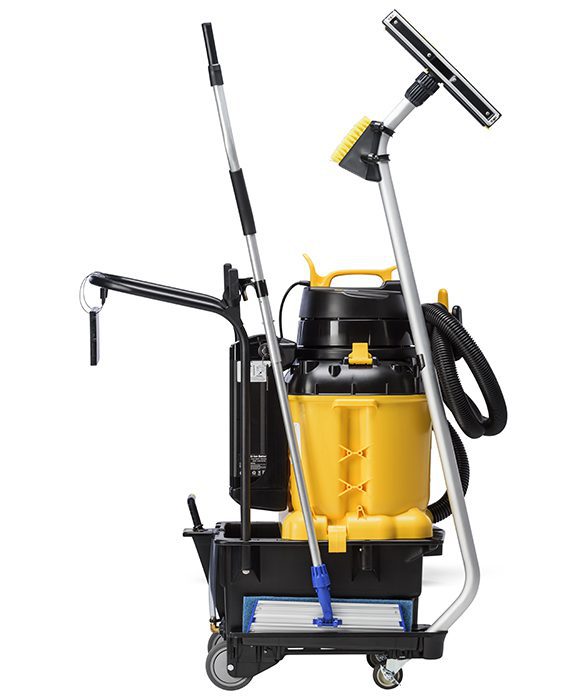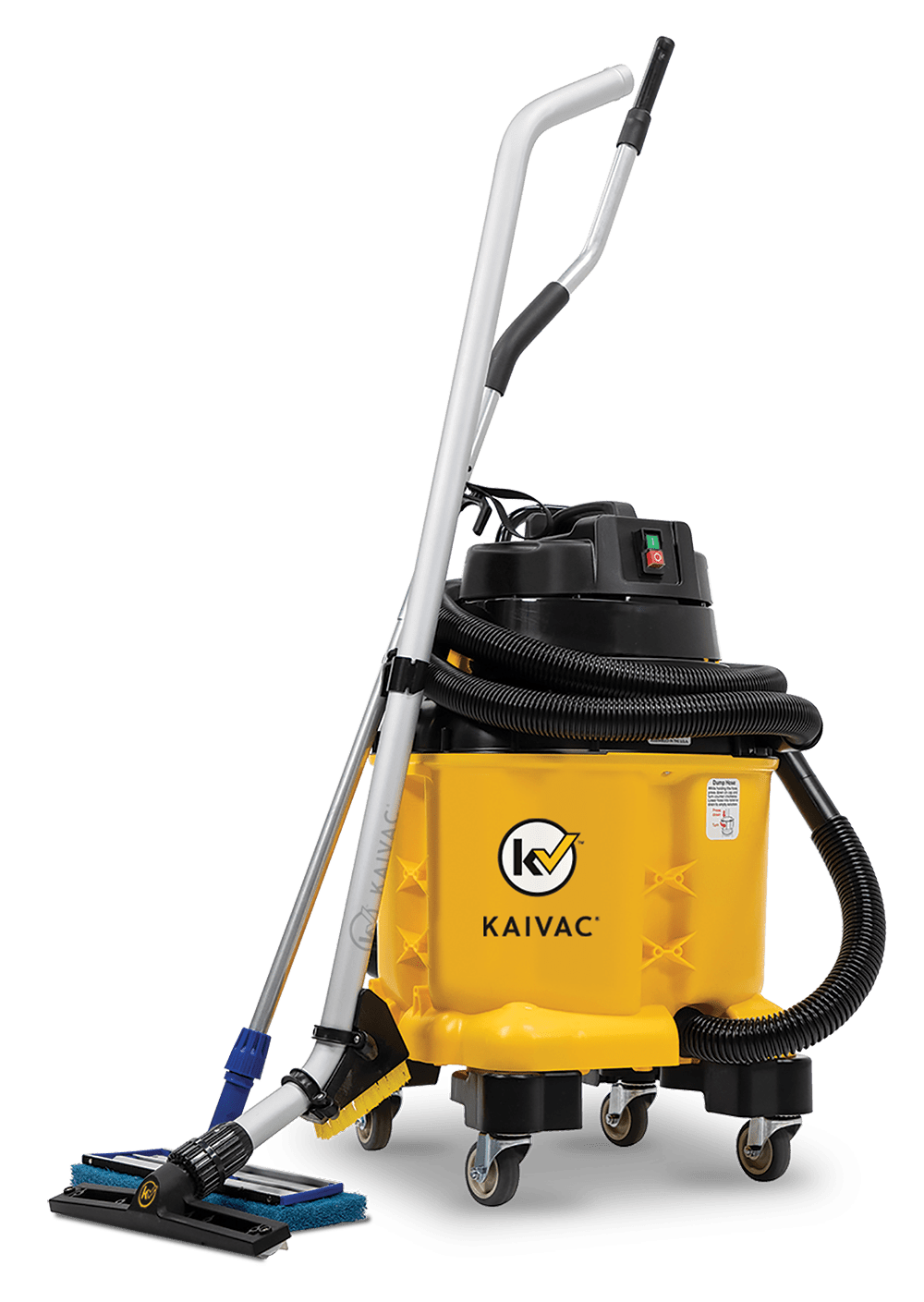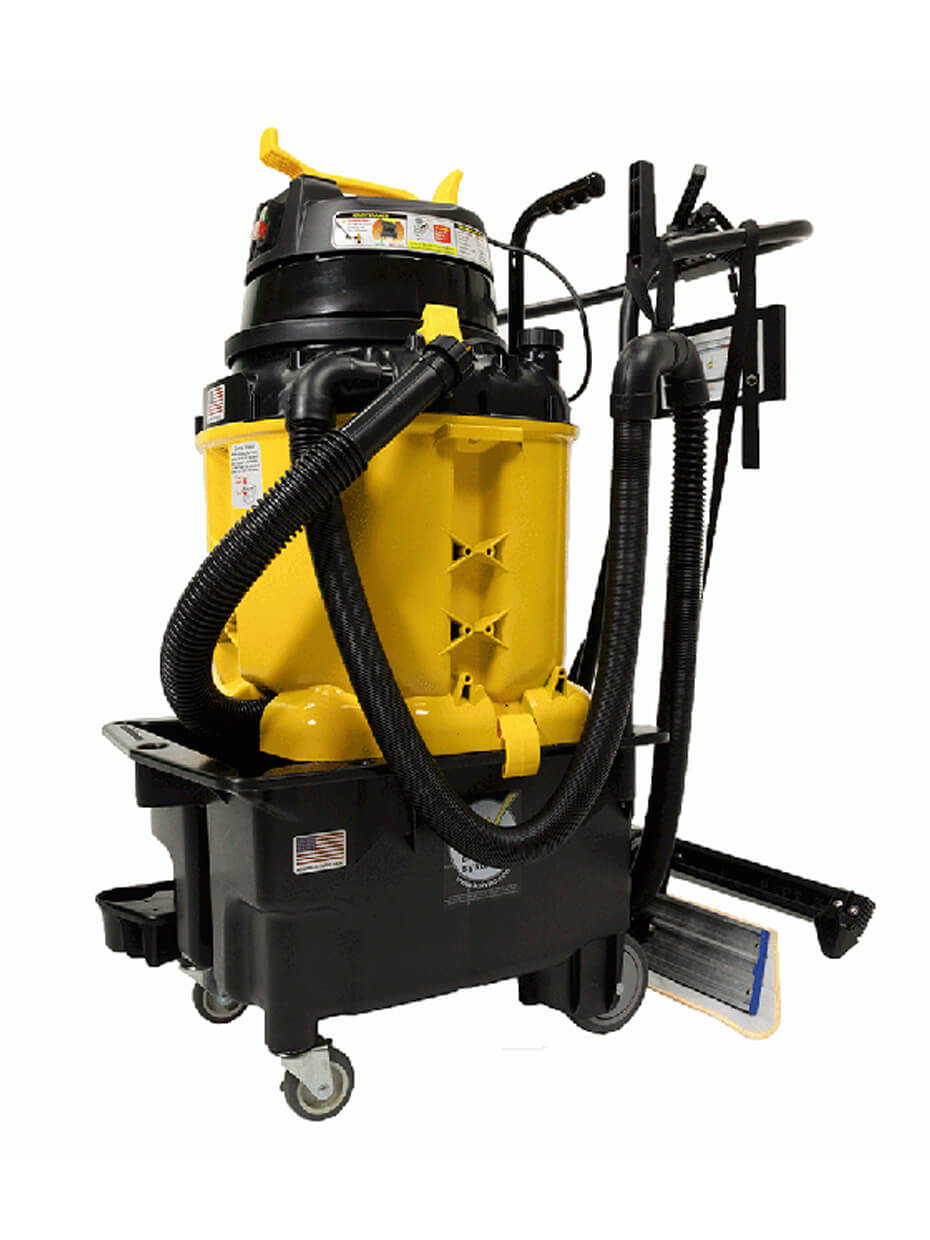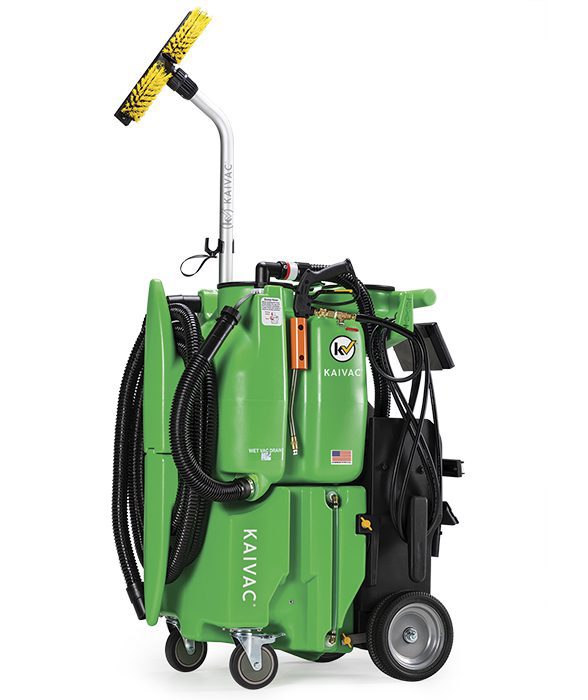Cleaning grocery cooler cases regularly should be a no-brainer.
Scheduled, regular maintenance extends the life of this expensive equipment, saves energy, keeps food fresh and protects consumers. Yet grocery stores don’t often include refrigerated display case cleaning in their maintenance checklist.
Why?
Resource constraints, like limited staff time and lack of appropriate equipment play a role, but really the biggest reason is good old inertia. Grocery managers are busy thinking about customer service, employee support, inventory and budgeting. And grocery stores run on narrow profit margins to start. The reality is, there are no standards or published guidelines about cleaning refrigerated display cases. You often unknowingly defer maintenance, and it’s only a matter of time until you need an expensive service call.
Putting off cleaning grocery cooler cases leads higher energy costs, lowered product life and potential equipment failure. To avoid these outcomes grocery managers will often hire outside services for their cooler maintenance. Often a local heating, ventilation and air conditioning (HVAC) contractor can clean grocery store refrigeration equipment. However, outsourcing this work gets expensive fast, especially if you want cooler cases cleaned weekly.
Conversely, knowing how to clean refrigerated display cases, and doing the work in-house, can give managers a leg up on their competition and boost the bottom line.
Grocery Store Display Coolers: Narrow Profits and Lots of Cases
There are over 38,000 supermarkets in the United States, offering a full line of dry grocery food products and fresh meat, fish, poultry and produce along with dairy products and service deli. Modern supermarkets also have café spaces with ready-to-eat food offerings.
Grocery stores are typically large, with a median total store size of 41,300 square feet according to the Food Marketing Institute (FMI). They are also filled with refrigerated cases. EnergyStar estimates that they operate more than one commercial refrigeration case for every 1000 square feet of space.
FMI estimates that the median weekly sales per supermarket in 2017 was slightly over $406,000. However, grocery store profit margins are historically thin. Sageworks reports that they made only 2.2% net profits in 2017. Running this lean is not necessarily bad news for supermarket managers, according to Sageworks analyst Libby Bierman ‘but it probably means they must be intentional about expense management and growth.’
Dirty Retail Display Cases Cost Money
Dirty refrigerated display cases cost grocery stores money in four different ways.
- Increased Power Bills: Dirty or clogged evaporator coils are a leading cause of refrigeration case inefficiency. Clean coils can increase energy efficiency by 35% or more. In a study conducted by the Food Service Technology Center, commercial refrigerators and freezers with dirty coils used a whopping 90% more energy than appliances with clean coils.
- Increased Service Dollars: Grocery Outlet estimates that 50% of all service calls are caused by dirty equipment. Clean coils extend the lifespan of expensive equipment and keeps the need for costly service calls low.
- Decreased Cooler Life: Dirty coolers work harder to maintain temperature. Clogged coils cause the refrigerator to overheat, burn up, and malfunction, which can lead to expensive replacements.
- Lost Sales: Poorly maintained coolers compromise food quality, leading to an unappetizing look, smell and texture. Eventually food will spoil and you will have to throw it away.
All of these outcomes are bad, but not nearly as damaging as the risk of making a consumer sick. If not cleaned properly and frequently, cooler shelving, and areas behind them can harbor potentially dangerous contaminants, creating a very high risk of biological contamination and compromising food safety. Regular cleaning removes this risk.
You Can’t Hide a Dirty Cooler
Customers may not know that a refrigerator case is dirty, but they can pick up on the telltale signs when they start to perform poorly. There could be puddling around the cooler frame from a clogged drain or overfull drip pan. You can stuff absorbent ‘pigs’ around the base of the equipment in an attempt to control or disguise leaks. There may be liquid sludge in the base of the cooler or dust cakes on the fins and fans.
All of these are off putting and may hurt a store’s sales and reputation. Would you buy produce, meat or dairy displayed in a poorly maintained cooler?
Cleaning Supermarket Coolers Procedure and Frequency
Given all of the costs associated with dirty cooler cases, the lack of standard cleaning procedures and frequencies is surprising. Some professionals suggest cleaning once a week. Others say coils must be cleaned every 30 to 90 days. In reality, most stores just wing it and figure out their own schedule.
When it comes to the actual cleaning, grocery store managers have two choices: tasking staff with a slow, ineffective manual procedure where there is a risk of injury from sharp sheet metal and coil surfaces or calling an expensive HVAC contractor.
As unappealing as both of those are, they are better than the third option: avoiding the task altogether.
Cleaning Grocery Coolers The Better Way
There is a better solution and it has been proven across thousands of retail stores all across America, the Kaivac Cooler Case Cleaner.
This superior technology features a specially-designed, indoor pressure washer that balances water pressure and volume to get the job done without harming expensive sensitive equipment. There’s also a powerful, three-stage wet vacuum to recover water, soils and other matter before they clog the drain.
When it comes to cleaning grocery cooler cases, the Kaivac Cooler Case Cleaner is easy to learn and super easy to use too. Each unit comes with KaiTutor, a video training system that leads the operator through the cleaning process, mounted right on board. It works in half the time of conventional, manual procedures freeing up staff for other tasks. Plus, it’s multifunctional, perfect for cleaning produce, meat and dairy coolers along with onion and potato displays, café areas and more.
The Cooler Case Cleaner can help supermarkets save money on maintenance, food waste and power bills. Stop calling your HVAC specialist and call Kaivac instead. Your bottom line with thank you.

